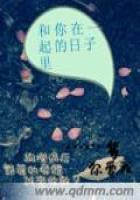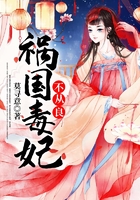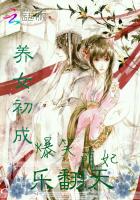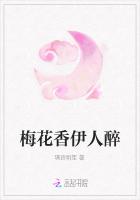From primitive times people have regarded the Long as an auspicious creature with the power to bless and influence their lives。 As tribes fought for domination and came to be united under a common banner the Long was adopted as a national icon。 Such was the mysterious creature’s power it was regarded as the god of rain, thunder, the rainbow, and the stars。 In a society that was founded upon agriculture and animal husbandry totally reliant upon its natural environment and in particular the climate, the dragon was worshipped as the source of all that was beneficial to communal well being。 This concept has been sustained for thousands of years as more and more deification was bestowed upon the dragon ranging from being a bringer of joy to prophecy and miracles。 With the establishment of a feudal society, emperors compared themselves to the Long thereby making it the exclusive symbol of imperial majesty。 Anyone who subsequently used the Long as a symbol either intentionally or erroneously could be regarded as offending their ruler and condemned to death。
The image of the Long has undergone a series of changes over the centuries becoming more and more mighty and beautiful。 The original illustration on primitive bronze ware portrays it as ferocious and mysterious; in the Han Dynasty (206BC–220), it became magnificent and unrestrained; while during the Tang Dynasty (618–907), it was personalized as gentle, tamed and graceful。 From the Song Dynasty onwards (960–1279), the design became delicate and flowery。
There are several different kinds of Long according to color, which may be yellow, blue, black, white or red。 Of these the most highly revered was the yellow Long and so each emperor wore a gown decorated with a yellow Long pattern。
Although there are differences in appearance, the basics are similar。 This is because it is a combination of the features of animals with which people were familiar。 A Long has a protruding forehead indicating wisdom and antlers。 Its ox’s ears denote success in the imperial examination; it has tiger’s eyes as a sign of power; eagle’s claws showing bravery; while a fish’s tail implies flexibility and the horse’s teeth are a mark of diligence and so on。
2龙的分类及意义
(1)龙的分类
Jiao Long蛟龙
Chi Long螭龙
Qiu Long虬龙
Ying Long应龙
(2)有关龙的说法
Many Chinese people often use the term “Descendants of the Long” as a sign of ethnic identity, as part of a trend started in the 1970s when different Asian nationalities were looking for animal symbols for representations。 The wolf was used among the Mongols, the monkey among Tibetans。
A number of Chinese proverbs and idioms also feature references to the Long, for example: “hoping one’s son will become a Long ”。
龙,作为我们中国人的一种独特文化的凝聚和积淀,已扎根和深藏于我们每个人的潜意识里头,不但人们的日常生活、生老病死几乎都打上了龙文化的烙印,而且龙文化的视角、龙文化的审美意识已渗透了我国社会文化的各个领域、各个方面。龙在中国传统文化中是权势、高贵、尊荣的象征,又是幸运和成功的标志。
Key words & Sentences
关键词句全知道
Long is a symbol of the Chinese nation。 Long is China in the world。
龙象征中华民族,国际上龙就是中国。
Long, phoenix, unicorn, and tortoise are called the “four auspicious”。
龙与凤凰、麒麟、龟并称“四瑞兽”。
In western myth, dragon is a winged animal。
西方神话中龙是带翼的动物。
The Long appears in the Chinese zodiac related to the Chinese calendar。
龙是中国传统十二生肖之一。
The Long is a very auspicious animal。
龙是一个很吉祥的动物。
Long has been linked with the imperial power for very long time, since the Yellow Emperor’s age。
龙与皇权挂钩的历史也很久远,从黄帝时就开始了。
The Year of the Long is associated with the earthly branch symbol。 Honest, sensitive, and brave, these individuals are compatible with Rats, Snakes, Monkeys and Roosters too。
龙年也有世俗的象征——诚实、敏感、勇敢,这些也符合老鼠、蛇、猴子、公鸡的特征。
Malevolent dragons also occur in the mythology of Persia and other places。
在波斯和其他的一些国家的神话传说中,龙也有代表邪恶的意思。
The saying, Chinese people are the offspring of the Long came from the ancient totem and tales。
俗话说,中国人是龙的传人,它来自古老的图腾与故事。
After unification of the tribes, Huang Di decided to use a new form of totem。 It is called Long。
统一部落后,黄帝决定使用一种新形式的图腾,也就是龙。
It is said that the head of the original bear and the body of a snake form the Long。
据说是熊的头和蛇的身体组成了龙的样子。
Long is the symbol of the emperor in the feudal age, and also used to refer to the imperial and imperial’s things, such as imperial crowns, palace, etc。
封建时代龙作为帝王的象征,也用来指帝王和帝王的东西,如龙袍、龙宫等。
Winged dragon is called Ying Dragon with a history about seven thousand years。
有翼的龙称为应龙,至今约有7000年的历史。
The prototype of Long has been burgeoning in the late Neolithic Age。
龙的雏形在新石器时代晚期已萌芽。
The Long King faith is produced by the rise of the Buddhism。
龙王信仰是随着佛教的兴起而产生的。
Long has five fingers。
龙有五根手指。
Long types varied, but basically close to reptiles。
龙的种类多种多样,但基本上接近爬行动物。
Most Longs have hard scales covering themselves with strange colors, mostly red, green, black and gold, etc。
绝大多数的龙都有坚硬的鳞片覆盖,它们的颜色也千奇百怪,多数是红、绿、黑和金色等。
All of the Longs will get more ability and more power because of the age increasing。
所有的龙都会随着年龄增长而获得更多的能力与更强的力量。
They live to be more than thousands of years, and maybe at birth they are only a few feet dragon, but they can achieve100 feet when they are Taigu Long。
它们的寿命超过千年,在出生时也许只有几英尺,但长到太古龙时则达到100英尺。
The primitive dragon’s appearance is like a huge winged serpent, some with legs and some do not。
最原始的龙则是庞大的有翅膀的巨蛇模样,有的长着脚,有的则没有。
China is the hometown of Long。
中华大地是龙的故乡。
In traditional auspicious patterns in China, the “Long and Phoenix” is a good pattern。
在中国传统的吉祥图案中,“龙凤呈祥”是很好看的一种。
Let’s Talk!
开始交流吧!
Li Mei: Do you know this animal?
李梅:你知道这是什么动物吗?
Mike: It looks like a snake, but with a little bigger head, but also a bit likes a lizard, what on earth is it?
迈克:看起来像蛇,可头好像大了点,又有点像蜥蜴,到底是什么啊?
Li Mei: Have you ever heard a song called Long’s offspring?
李梅:你听过一首歌叫“龙的传人”吗?
Mike: Yeah, it is singed by Lee Hom。
迈克:听过,王力宏唱的。
Li Mei: This is the Long。
李梅:这就是龙。
Mike: Ah, why do you called yourselves the successor?
迈克:啊,为什么说你们是它的传人啊?
Li Mei: This is the Chinese Long culture。 The Long has always been a part of our lives, but whether it is real or just a kind of totem, no one can say it clearly。
李梅:这是我们中国人的龙文化啊。龙一直存在于我们的生活中,但它到底是真实存在还是只是一种图腾,到现在也没人能说得清楚啊。
Mike: What does the Long represent?
迈克:龙代表什么呢?
Li Mei: The Long is a symbol of good fortune, power and elegance。
李梅:龙是一种吉祥的象征,是权势与高贵的象征。
Mike: No wonder then, in short, it is the symbol of a good side。














